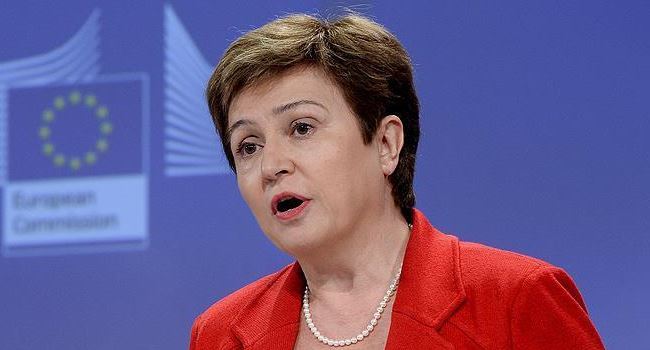Business
IMF approves Ghana’s $3bn loan request

The International Monetary Fund (IMF) has approved the Ghanaian government’s request for a $3 billion loan.
Ghana had requested the loan following a financial crisis that made it impossible for the country to meet local and international credit obligations.
The loan will be disbursed in tranches, with the IMF releasing $600 million to aid Ghana in its comprehensive reform programme.
Part of the facility, which was first requested in July 2022, will be used to fund macroeconomic stability and debt sustainability.
Ghana embarked had last year embarked on loan restructuring, part of which required companies that invested in bonds to take about a 30 percent cut in their investments.
To ensure the successful completion of the ongoing debt restructuring, IMF will collaborate with Ghana to develop an immediate policy to solve the country’s financial challenges.
The Bretton Wood institution will also assist the West African nation to mobilise external financing from development partners.
Commenting on the partnership with Ghana, IMF Managing Director, Kristalina Georgieva, said: “In response, the authorities have launched a comprehensive reform program, to be supported by the ECF arrangement. It is focused on restoring macroeconomic stability and debt sustainability as well as implementing wide-ranging reforms to build resilience and lay the foundation for stronger and more inclusive growth.”
“Capacity development and continued support by development partners would be critical for the successful implementation of the authorities program.
“Fiscal consolidation is a core element of the program. A substantial and front-loaded fiscal adjustment has started with the 2023 budget.
Read also: IMF economic projection for Nigeria sub-optimal —CBN gov, Emefiele
“Enhanced revenue and streamlined expenditure will be combined with policies to protect vulnerable households and create room for higher social and development spending in the medium term.
“With a view to fostering lasting fiscal discipline, the authorities are also advancing reforms to enhance domestic revenue mobilization, strengthen public financial management, and tackle the deep challenges in the energy and cocoa sectors.
“The government has also launched a comprehensive debt restructuring, including both domestic and external debt, to place debt on a sustainable path. Effective collaboration by all parties involved would be critical.
“Preserving financial sector stability is critical for the success of the program. Given the adverse impact of the domestic debt restructuring on the balance sheets of financial institutions, the authorities will devise and implement a comprehensive strategy to rapidly rebuild financial institutions’ buffers and exit from temporary regulatory forbearance measures.
“Monetary and exchange rate policies under the program will focus on reining in inflation and rebuilding foreign reserve buffers. The Bank of Ghana will continue tightening monetary policy until inflation is on a firmly declining path and will eliminate monetary financing of the budget. The central bank will also enhance exchange rate flexibility and limit foreign exchange interventions to rebuild external buffers.”
Join the conversation
Support Ripples Nigeria, hold up solutions journalism
Balanced, fearless journalism driven by data comes at huge financial costs.
As a media platform, we hold leadership accountable and will not trade the right to press freedom and free speech for a piece of cake.
If you like what we do, and are ready to uphold solutions journalism, kindly donate to the Ripples Nigeria cause.
Your support would help to ensure that citizens and institutions continue to have free access to credible and reliable information for societal development.
























